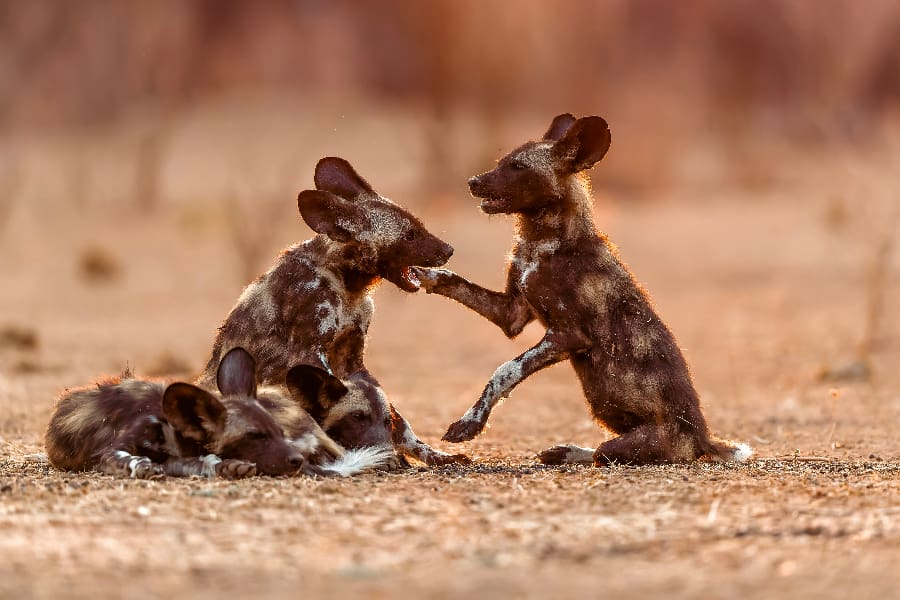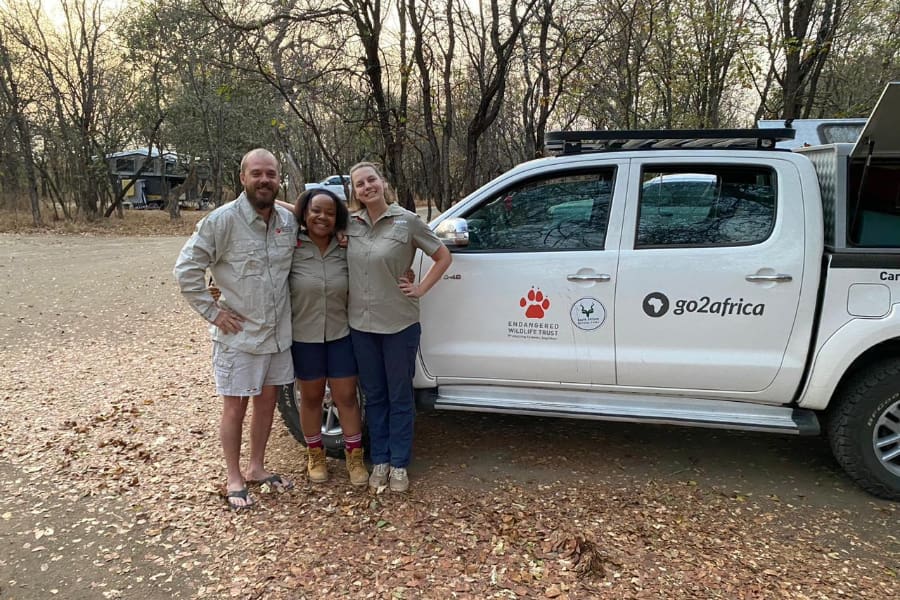Idioma
- English
- Español
- Français
- Italiano
- Português
- Deutsch
- Nederlands
Moneda
- AUD Dólar australiano
- CAD Dólar canadiense
- EUR Euro
- GBP Libra esterlina
- USD Dólar estadounidense
- ZAR Rand

Endangered Wildlife Trust
The Endangered Wildlife Trust (EWT) is a respected conservation non-profit working to protect Africa's threatened species and ecosystems for the benefit of both people and nature. Established in 1973, the organisation has grown into one of South Africa's leading voices for biodiversity, with a footprint that extends across Southern and East Africa.
EWT promotes nature-based solutions that safeguard ecosystems and improve human wellbeing. By integrating conservation into key government sectors such as agriculture, education, mining, and urban planning, they address the root causes of biodiversity loss, including habitat destruction, climate change, and unsustainable land use.
At the core of their work are nine priority Living Landscapes (critical ecosystems), where their long-term programmes are focused:
By working across landscapes and sectors, the EWT is shaping a future where wildlife and communities thrive side by side, each strengthened by a healthy, connected natural world.

Go2Africa donates $5 to the Endangered Wildlife Trust (EWT) for every night spent in the Kruger. We believe in being a force for good, and by partnering with EWT in the Kruger, we ensure that every guest contributes positively to the Kruger & Greater Limpopo Transfrontier Conservation Area (GLTFCA), supporting its environment, wildlife, and surrounding communities.
The Great Limpopo Transfrontier Park plays a vital role in both conservation and local socio-economic development, especially for the communities living around Kruger National Park. While human population density inside Kruger is low, the surrounding rural areas are home to large communities, some of whom rely on the park's natural resources. The transfrontier initiative coordinates conservation across national borders, safeguards ecosystem health, and creates benefits for local people through tourism and responsible resource use.
Go2Africa has been a long-term funder of EWT's conservation work in the Greater Kruger. Our support has provided funding for EWT's Carnivore Conservation Programme, including tracking and monitoring equipment to protect endangered species such as the vulnerable African wild dog (painted wolf), as well as critical logistics for lion research and protection.
More recently, our funding has focused on regenerative agriculture training, mentorship, and improved market access for smallholder farmers, further strengthening the link between conservation and community wellbeing. Looking ahead, we will also be investing in EWT's People in Conservation Programme, which creates opportunities and unlocks jobs in the green economy.

In South Africa's Limpopo Province, the Western Soutpansberg is a biodiversity hotspot of exceptional ecological and cultural value. Yet communal farms west of Kruger face mounting pressures: unsustainable, high-input farming methods are eroding soils, lowering yields, and fragmenting habitat. At the same time, weak access to reliable markets keeps profits marginal, leaving landholders with little incentive to favour conservation over short-term survival.
Within this complex setting, the Endangered Wildlife Trust (EWT) is working hand-in-hand with smallholder farmers to build more sustainable ways of living with the land. Their Farming for the Future initiative demonstrates that conservation-compatible agriculture can be both practical and profitable, securing a critical wildlife corridor while reinforcing community resilience.
Looking ahead to 2026, EWT's proposal tackles the twin challenges of soil degradation and poor market access through a holistic support package. This includes a hands-on regenerative agriculture course, ongoing field coaching, and negotiated supply agreements with local buyers. The approach restores soil health, lifts farm income, and strengthens food security while ensuring farming works in harmony with nature. Farmers gain the tools to grow consistent, high-quality crops, some already supplied to local lodges and stores, while reducing pressure on surrounding wild habitats.
More than 200 individuals are directly involved in the project, from community-led farming cooperatives to training programmes for unemployed graduates. By improving market access and building farming skills, the initiative helps unlock the value of natural capital, shifting communities toward profitable, regenerative agriculture that supports both people and biodiversity.
Go2Africa is proud to support this long-term solution. In 2025/2026, our funding commitment includes $95,000+ to the Soutpansberg (Greater Kruger) Living Landscape, plus an additional $5,000+ to the Drakensberg Grasslands Strategic Conservation Landscape (via the Rhino Peak Challenge). Together, these contributions strengthen local food systems, safeguard habitats, and create a powerful model of how tourism can contribute to resilient, conservation-driven economies.
Book a Highest Impact Safari
Our Highest Impact Safaris are more than just tu mayor aventura in the Greater Kruger, it directly contributes to the Endangered Wildlife Trust's vital work, protecting endangered species, partnering with communities, and preserving the natural heritage of South Africa for generations to come.